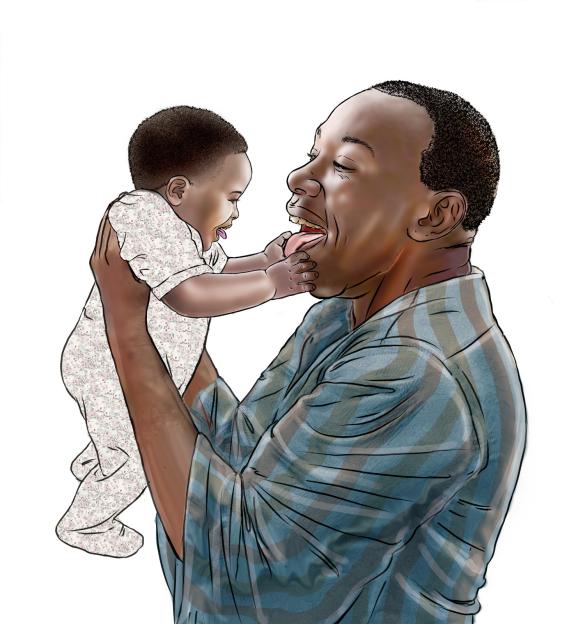
The RCEL Addendum package for Ghana includes: a Training Package; Counselling Cards; and a flow chart. These materials are required for any program interested in using the RCEL Addendum in Ghana. Additionally, there are optional videos included below that programs can use during the training if they have the technology/capabilities to do so. For more information and to download each of the components of the RCEL Addendum package, see below.
Training Package
The RCEL Addendum Training Package includes a Facilitator’s Guide, a Training Aid, and Participant Handouts required to train facilitators, community-level counselors, and health providers.
Download the Facilitator’s Guide (English, PDF, 2.2 MB)
Download the Training Aid (English, PDF, 4.4 MB)
Download the Participant Handouts (English, PDF, 783 KB)
Counselling Cards
The RCEL Addendum Counseling Cards are the primary tool from this package that counselors use in their daily work. The cards consist of illustrations adapted for Ghana.
Download the Counselling Cards in PDF (English, PDF, 2.49 MB)
Infant and Young Child Feeding (IYCF)/Responsive Care and Early Learning (RCEL) Counselling Flow Chart for Child Welfare Services
The IYCF/RCEL Counselling Flow Chart for Child Welfare Services is a decision-making flow chart job aid for health workers. This algorithm-based tool helps health workers to prioritize clients needing in-depth counselling (e.g., at-risk for malnutrition or developmental delays), streamline workflows, and provide tailored IYCF and RCEL Counselling. The flow chart is available in two sizes - A0 and A1 - and is also incorporated into the Counselling Cards.
Download the IYCF/RCEL flow chart size A0 in PDF (English, PDF, 3.4 MB)
Download the IYCF/RCEL flow chart size A1 in PDF (English, PDF, 3.4 MB)
Responsive Care and Early Learning Videos
These videos, captured in community settings in Ghana, show:
- real interactions between caregivers and their newborns and young children, and;
- counselling sessions during a health facility consultation.
The videos model responsive care behaviors as they unfold in everyday settings with a variety of caregivers. There are two sessions in the RCEL Addendum training that include the option to utilize videos as part of that session. To show the videos, facilitators should have access to a laptop with audio and a projector. See the RCEL Addendum Facilitator's Guide for more information about using the videos during the training.
Caregiver-Child Interactions Ghana
This video shows natural interactions between children and caregivers in Ghana and does not contain narration. It is intended for observing several different types of interactions between young children of various ages and their caregivers.
Download the Transcript (English, DOCX, 477.47 KB)
Caregiver-Child Interactions with Narration Ghana
This video presents the scenarios from the “Caregiver-Child Interactions Ghana” video but with audio narration that highlights the child’s cues and caregiver responses in each interaction.
Download the Transcript (English, DOCX, 474.85 KB)
How to Observe Caregiver-Child Interactions Ghana
This video shows selected scenarios from the “Caregiver-Child Interactions Ghana” video with a pause-and-reflect or question-and-explanation format to enable viewers to observe and reflect on the interactions.
Download the Transcript (English, DOCX, 474.71 KB)
Counselling Caregivers at a Clinic Visit: A 3-Step Approach Ghana
This video demonstrates an individual counselling visit in a clinic in which the counselor is discussing responsive care and early learning topics with a caregiver. It follows a 3-step approach to counselling used in Ghana and is narrated to explain what is taking place during the counselling visit.
Download the Transcript (English, DOCX, 476.26 KB)
Universal Baby Cues
This video focuses on common cues that infants and young children at different ages use to communicate how they feel and what they need. This video displays how these cues are universal across different peoples and cultures. Scenarios depicting caregivers and children from both Ghana and the Kyrgyz Republic are included.
Download the Transcript (English, DOCX, 476.58 KB)